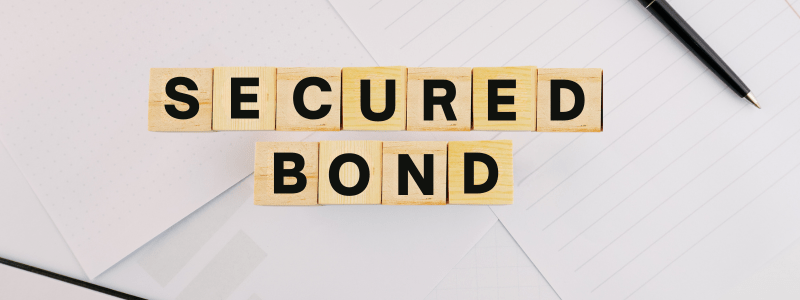
Investing can feel like navigating a maze, especially when it comes to bonds. Have you ever wondered what makes one bond different from another? Today, we’re diving into the world of secured bonds, a type of investment that promises a bit more safety in an unpredictable market. So, buckle up as we explore the benefits, risks, and tips for investing in secured bonds!
What Are Secured Bonds?
Secured bonds are like the dependable friend who always has a backup plan. They’re a type of bond backed by collateral, which means if the issuer defaults, the investors have a claim on specific assets. This safety net makes secured bonds a popular choice for those looking to reduce investment risk.
How Secured Bonds Work
When a company or government entity issues a secured bond, they pledge certain assets as collateral. This might include real estate, equipment, or other valuable property. If the issuer fails to make interest payments or repay the bond at maturity, investors can claim the collateral to recoup their investment.
Types of Secured Bonds
Mortgage Bonds
Mortgage bonds are backed by real estate holdings or physical property. Think of it as the bond equivalent of a mortgage loan.
Collateral Trust Bonds
These are secured by financial assets like stocks or bonds. It’s like having a trust fund backing up your investment.
Equipment Trust Certificates
Used primarily by transportation companies, these bonds are secured by equipment, such as airplanes or trains. It’s a bit like leasing out a car – if the payments stop, the car goes back to the lender.
Benefits of Secured Bonds
Lower Risk Compared to Unsecured Bonds
Secured bonds are generally safer than their unsecured counterparts because they’re backed by collateral. It’s the financial world’s way of saying, “I’ve got you covered.”
Higher Priority in Liquidation
If a company goes bankrupt, secured bondholders are first in line to claim the pledged assets. It’s like having a VIP pass to a clearance sale.
Fixed Interest Payments
These bonds often come with regular, predictable interest payments, making them a reliable source of income.
Risks of Secured Bonds
Risk of Default
No investment is without risk. If the issuer defaults, the collateral might not cover the full value of the bond.
Market Risk
Bond prices can fluctuate based on market conditions. It’s a bit like riding a roller coaster – thrilling but sometimes nerve-wracking.
Interest Rate Risk
When interest rates rise, bond prices typically fall. It’s an inverse relationship that can impact your investment’s value.
How to Invest in Secured Bonds
Steps to Purchase Secured Bonds
- Research: Understand the issuer and the collateral.
- Brokerage Account: Open an account if you don’t have one.
- Buy Bonds: Purchase through a broker or directly from the issuer.
- Monitor: Keep an eye on market conditions and the issuer’s financial health.
Best Practices for New Investors
- Diversify: Don’t put all your eggs in one basket.
- Consult Experts: Financial advisors can provide valuable insights.
- Stay Informed: Regularly review market trends and economic indicators.
Secured Bonds vs. Unsecured Bonds
Key Differences
Secured bonds are backed by collateral, while unsecured bonds rely solely on the issuer’s creditworthiness. It’s like comparing a house with a safety deposit box – one has a built-in guarantee.
Pros and Cons of Each
- Secured Bonds: Lower risk but potentially lower returns.
- Unsecured Bonds: Higher risk with the possibility of higher returns.
Understanding Collateral
What Qualifies as Collateral
Collateral can be anything of value, from real estate to financial securities. It’s the safety net that supports the bond.
Importance of Collateral in Secured Bonds
Collateral provides security for investors, reducing the risk of losing their principal investment.
Factors Affecting Secured Bond Value
Credit Rating of Issuer
A higher credit rating indicates a lower risk of default, making the bond more attractive.
Market Conditions
Economic stability and interest rates play a significant role in bond prices.
Economic Factors
Inflation, economic growth, and political stability can impact bond values.
Evaluating Secured Bond Issuers
Creditworthiness
Look for issuers with strong credit ratings. It’s like checking a restaurant’s health inspection score before dining there.
Financial Health
Review financial statements to assess stability and profitability.
Industry Stability
Industries with steady demand and minimal disruption are ideal for bond investments.
Tax Implications of Secured Bonds
Taxable vs. Tax-Exempt Bonds
Some bonds are exempt from federal or state taxes, making them more attractive to certain investors.
How Interest Income is Taxed
Interest from taxable bonds is subject to income tax, impacting your net returns.
Investment Tips for Secured Bonds

Diversifying Your Bond Portfolio
Spread your investments across different types of bonds to mitigate risk.
Timing Your Investments
Consider market conditions and interest rates when buying bonds.
Consulting Financial Advisors
Professional advice can be invaluable, especially for beginners.
Conclusion
Secured bonds offer a unique blend of security and steady income, making them an attractive option for risk-averse investors. By understanding the benefits, risks, and investment strategies, you can make informed decisions that align with your financial goals.
FAQs
1. What is the difference between secured and unsecured bonds?
Secured bonds are backed by collateral, while unsecured bonds rely on the issuer’s creditworthiness.
2. Are secured bonds safer than stocks?
Generally, yes. Secured bonds are less volatile and have a built-in safety net through collateral.
3. Can secured bonds lose value?
Yes, market conditions and interest rate changes can affect bond prices.
4. How do interest rates affect secured bonds?
Rising interest rates typically lower bond prices, while falling rates can increase them.
5. What should I look for in a secured bond issuer?
Focus on the issuer’s credit rating, financial health, and industry stability.
For more insights into managing your investments and achieving financial success, read our detailed article on How to Become a Successful Investor.
